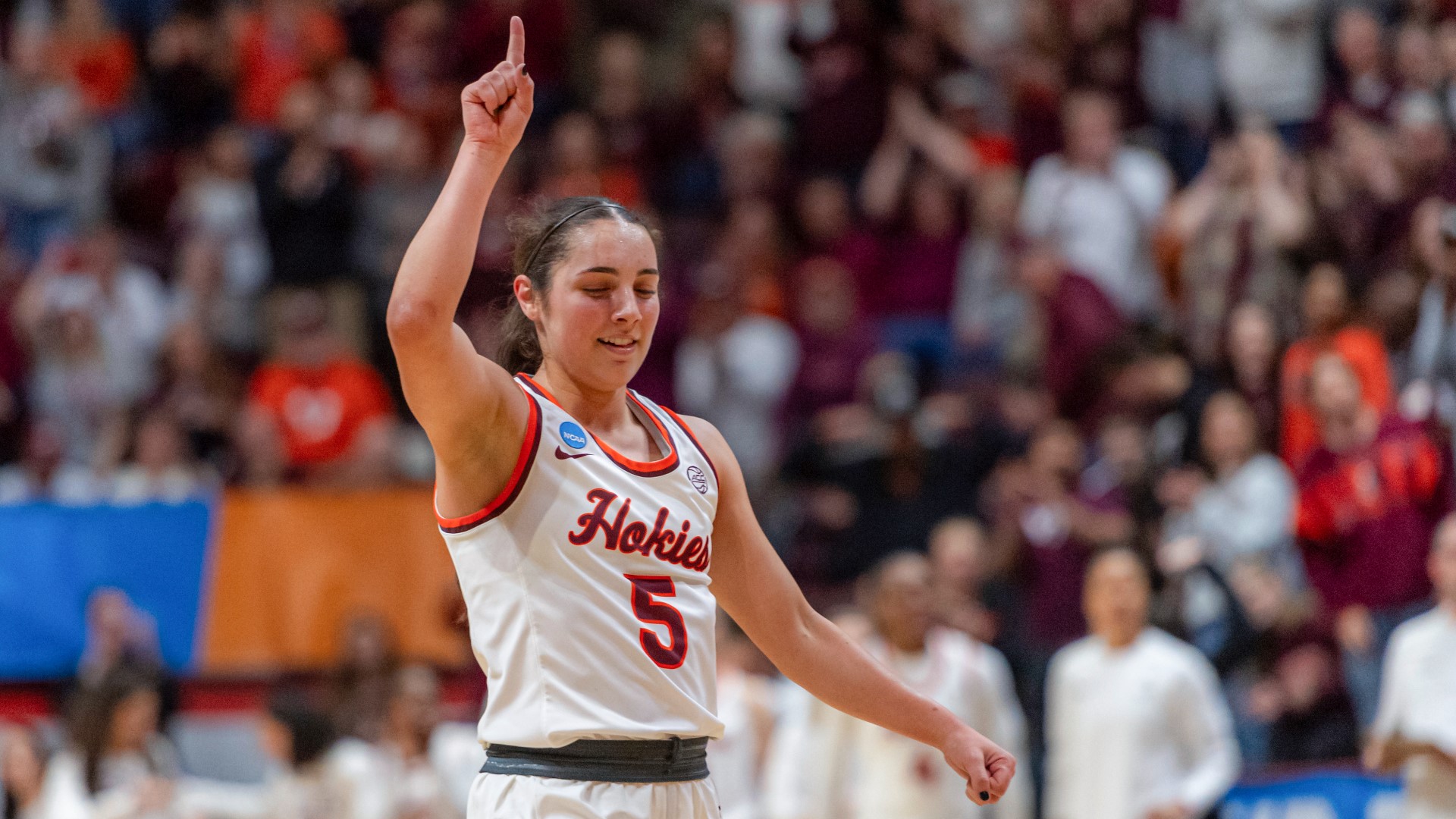RICHMOND, Va. — Virginia Gov. Glenn Youngkin signed the measure into law Thursday that allows state colleges and universities to directly pay their athletes through name, image and likeness compensation deals, a measure believed to be the first of its kind.
The law, which takes effect July 1, was signed one day after the NCAA eased some of its NIL restrictions but noted that its longstanding “prohibitions against pay-for-play and schools compensating student-athletes for use of their NIL remain in place.”
Michigan athletic director Warde Manuel said other states may follow Virginia's lead. Several states have legislation pending, including Oklahoma, Nebraska and Louisiana.
“The Virginia decision — by the lawmakers there and the governor to sign it — I think really kickstarts it and puts it right at all of our doorsteps,” Manuel said in an interview with The Associated Press.
The NCAA in July 2021 allowed college athletes to earn money from deals with brands or businesses that compensate them for such things as endorsements or personal appearances. That has made millions of dollars available to athletes and prompted many states to put laws in place preventing the NCAA from restricting NIL revenue, seen by most as a recruiting enticement.
“If this law gets us closer to a federal or a national solution for college athletics then it will be more than worthwhile,” University of Virginia athletic director Carla Williams told ESPN. “Until then, we have an obligation to ensure we maintain an elite athletics program at UVA.”
Earlier this week, the NCAA moved forward on legislation that would allow its 1,100 member schools to be more actively involved in securing sponsorship and endorsement deals for their athletes, including facilitating opportunities between third parties and athletes.
The Virginia law clears the way for donors to work directly with a school on paying athletes. One of the bill's sponsors, Del. Terry Austin, told the Richmond Times-Dispatch, that the bipartisan measure was drafted by a University of Virginia deputy athletic director.
Virginia Tech athletic director Whit Babcock told ESPN the school is considering different options for NIL payments, from contracting with a marketing agency or booster-backed collective to pay the athletes rather than money directly from the athletic department.
In December, when NCAA President Charlie Baker proposed a new subdivision of Division I athletics, he said all D-I schools should attempt to bring most NIL activities in-house and consider joint licensing deals with their athletes that would allow schools to pay the athletes.
State lawmakers have been a recent catalyst in prompting changes to NCAA rules around player compensation. In 2019, California lawmakers passed a bill that allowed college athletes to cash in on their fame, other states quickly followed suit and the NCAA was forced to lift its regulations. What remains is a patchwork of rules across the country.
Since then, the NCAA has suffered a number of losses in court tied to its basic model of amateurism amid growing support for empowering athletes.
Last month, it halted investigations into booster-backed collectives or other third parties making NIL deals with D-I athletes. A few days later, Dartmouth men’s basketball players took an early step toward forming the first union in college sports.
“I do think the time is upon us where student-athletes either are going to be employees or are going to be allowed to receive money, even if they’re not employees,” Manuel told the AP.

